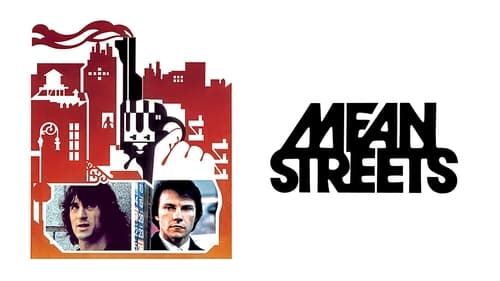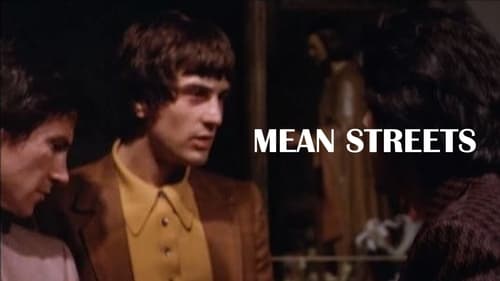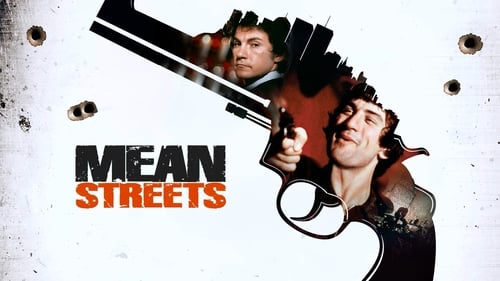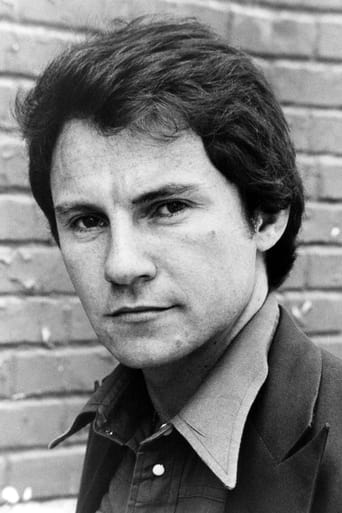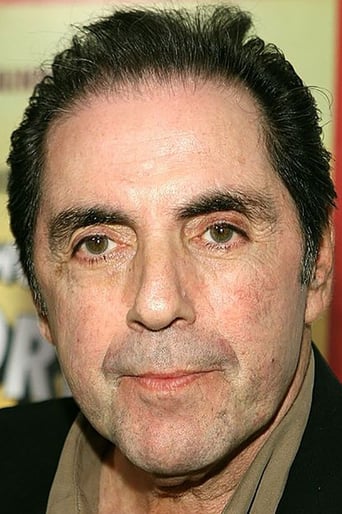Greenes
Please don't spend money on this.
Humbersi
The first must-see film of the year.
Raymond Sierra
The film may be flawed, but its message is not.
Geraldine
The story, direction, characters, and writing/dialogue is akin to taking a tranquilizer shot to the neck, but everything else was so well done.
Pjtaylor-96-138044
'Mean Streets (1973)' is seasoned with sprinklings of greatness, at times showing shades of what Scorsese would go on to do (i.e. 'Goodfellas (1990)'). Despite some solid acting throughout and a few entertaining sequences, though, the film generally falls flat thanks to the fact that there really isn't all that much of a plot and, as such, there isn't any real drama to latch onto. The result is a picture which feels much longer than it is and is also actually rather boring, floating along from set-piece to set-piece without any compelling connective tissue. It ends just as it seems to get going, too. 5/10
mathildesalberte
As a big fan of Martin Scorsese's work, I was rather disappointed by this film. It starts off nicely with some intriguing scenes, but nothing really happens and no developments happen throughout the whole picture. The acting is alright and so is the editing and sound mixing, but the plot is tedious and almost non-existent. As a debut film it is alright, however I would never go as far as to call it somewhat of a classic and if someone asked me to watch it again, I would be happy to take a pass.
SlyGuy21
Never thought I'd find a Scorsese movie boring, but this is beyond boring. I was struggling to stay interested after 30 minutes. There's no real plot, not character development, some scenes just exist and serve no purpose. I'm willing to give Scorsese some slack here, because this was before "Taxi Driver" when his career really took off, but it's not a lot of slack, because the movie's still boring as hell. Thankfully, the movie's so forgettable, that in a couple of days I'll have forgotten about 95% of it, and it was a pretty quick sit for me losing interest so early. It's a good thing Scorsese's career was able to kick off a couple of years later, because this was not a good start if you ask me.
nqure
'Mean Streets' is Martin Scorcese's edgy breakthrough, reminiscent of Tarantino's 'Reservoir Dogs' & its exciting freshness (Keitel appearing in both), two young directors who became the epitome of cool, though bigger budgets does not necessarily mean better films, i.e. 'Casino', which feels superficial & bloated in comparison to this gritty but soulful first work where neither criminality or violence are glamorised as you sometimes feel they are in his later work (stylised, balletic). At least though, Scorcese hasn't become a parody of himself unlike QT.'The Mean Streets' are the streets of New York's Little Italy district, - the streets of Scorcese's early youth, 'mean' because they can corrupt & brutalise a man's soul. In this brutish world of violence, rigid social codes (racism) & machismo, young hood, Charlie (Harvey Keitel) , intuitively strives towards something purer. This religious dimension is shown at the beginning where Charlie holds his hand over a burning candle in a church where he ponders over the nature of pain (physical & spiritual). We are allowed an insight into Charlie's mind through his narration, thus privy to his private inner being.Charlie is a young man in torment with his world literally becoming hell such as the club Charlie & his associates hang out at, subterranean & shot through with a red hue. In one of the best scenes when Charlie & his associates have a lock-in, a swirling camera captures his disorientated state of mind as if he is on a carousel from which he cannot get off. Some of the images of this film are startling such as the lion kept in a cage. It is surprisingly tender with its hoodlum owner. What does it mean? Is it an allusion to the tenderness within Charlie? Charlie seeks transcendence (redemption) through his friendship & misplaced loyalty with Johnny Boy, a startling performance of frenetic energy & nervous tension by de Niro & his love affair with a local girl Terese, who suffers from epilepsy. He first glimpses her through a window, literally a glimpse into another possibility & kind of life away from the streets, but insecurity & the lure of this easy life pull Charlie back.The film concentrates on Charlie's life & his relationships in a loose structure that suits the film's more reflective moments. Why does Charlie feel such loyalty towards Johnny Boy? It wasn't clear to me, though avik-basu1889's perceptive review explained matters excellently, the religious element in how Charlie attempts to save himself by trying to save Johnny Boy but ironically damns himself.Charlie's life is riven by conflict & divided loyalties, between his Uncle, a local criminal bigwig, who disapproves of his girlfriend, & his criminal associates who are shown disrespect by Johnny Boy. Trouble follows Johnny Boy wherever he goes as he lashes out physically & verbally, literally walking on the edge. An early scene where Charlie & his associates go to collect a gambling debt descends into farce because of Johnny Boy's provocative behaviour. In a milieu where men cannot be seen to lose face for fear of being perceived as weak, Johnny Boy's increasingly erratic behaviour can only lead to a violent outcome.Scorcese's triumph is to give a young hoodlum, depth & spiritual complexity, that beneath the bluster & street swagger lies doubt & moral compromise.



